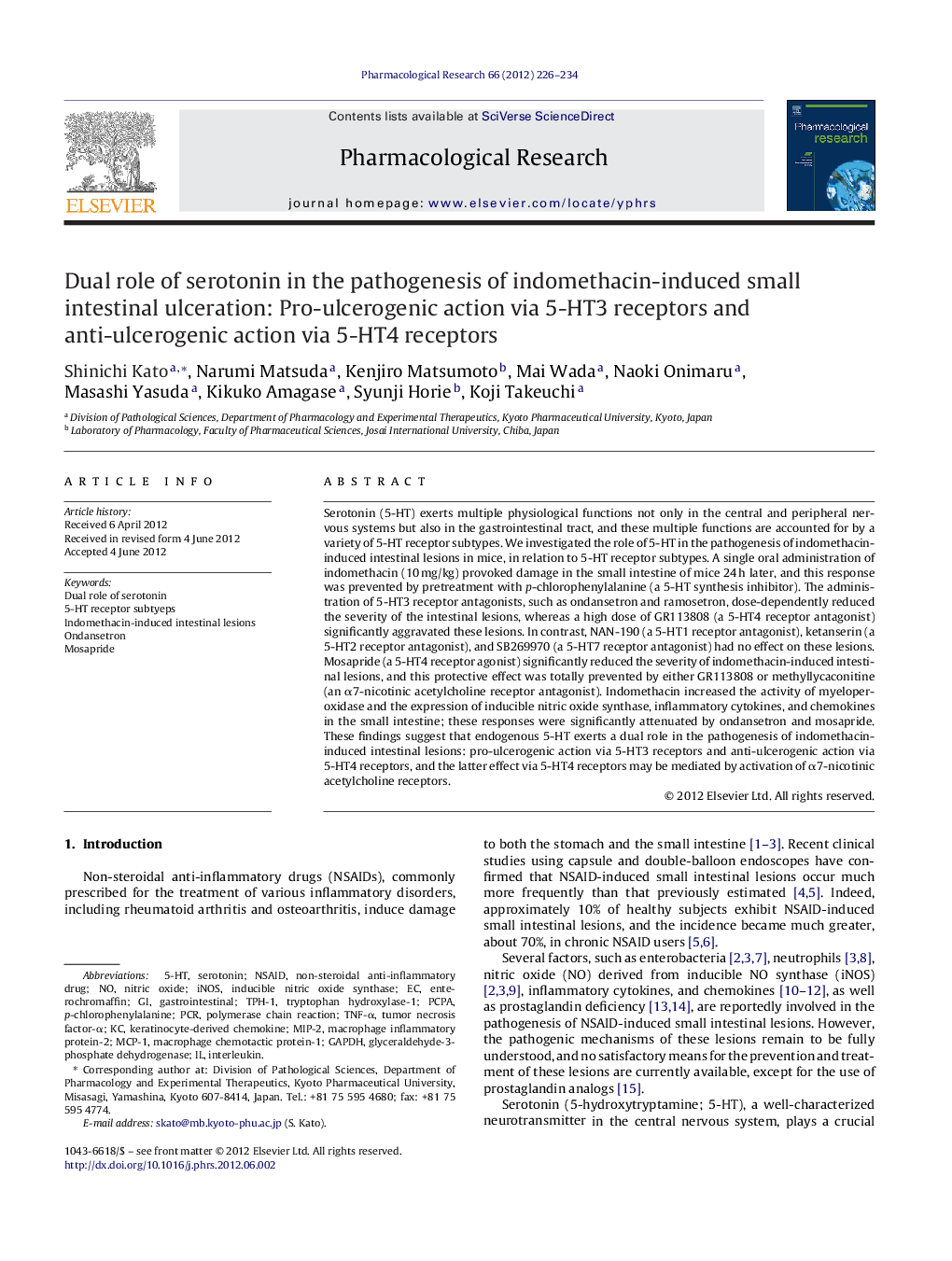| کد مقاله | کد نشریه | سال انتشار | مقاله انگلیسی | نسخه تمام متن |
|---|---|---|---|---|
| 2561483 | 1126925 | 2012 | 9 صفحه PDF | دانلود رایگان |

Serotonin (5-HT) exerts multiple physiological functions not only in the central and peripheral nervous systems but also in the gastrointestinal tract, and these multiple functions are accounted for by a variety of 5-HT receptor subtypes. We investigated the role of 5-HT in the pathogenesis of indomethacin-induced intestinal lesions in mice, in relation to 5-HT receptor subtypes. A single oral administration of indomethacin (10 mg/kg) provoked damage in the small intestine of mice 24 h later, and this response was prevented by pretreatment with p-chlorophenylalanine (a 5-HT synthesis inhibitor). The administration of 5-HT3 receptor antagonists, such as ondansetron and ramosetron, dose-dependently reduced the severity of the intestinal lesions, whereas a high dose of GR113808 (a 5-HT4 receptor antagonist) significantly aggravated these lesions. In contrast, NAN-190 (a 5-HT1 receptor antagonist), ketanserin (a 5-HT2 receptor antagonist), and SB269970 (a 5-HT7 receptor antagonist) had no effect on these lesions. Mosapride (a 5-HT4 receptor agonist) significantly reduced the severity of indomethacin-induced intestinal lesions, and this protective effect was totally prevented by either GR113808 or methyllycaconitine (an α7-nicotinic acetylcholine receptor antagonist). Indomethacin increased the activity of myeloperoxidase and the expression of inducible nitric oxide synthase, inflammatory cytokines, and chemokines in the small intestine; these responses were significantly attenuated by ondansetron and mosapride. These findings suggest that endogenous 5-HT exerts a dual role in the pathogenesis of indomethacin-induced intestinal lesions: pro-ulcerogenic action via 5-HT3 receptors and anti-ulcerogenic action via 5-HT4 receptors, and the latter effect via 5-HT4 receptors may be mediated by activation of α7-nicotinic acetylcholine receptors.
Figure optionsDownload high-quality image (171 K)Download as PowerPoint slide
Journal: Pharmacological Research - Volume 66, Issue 3, September 2012, Pages 226–234